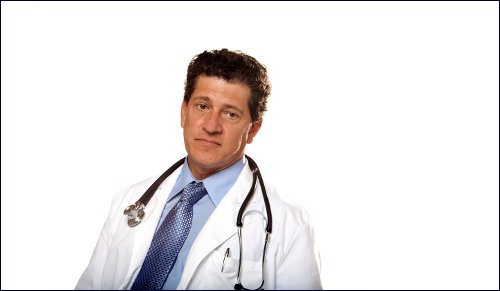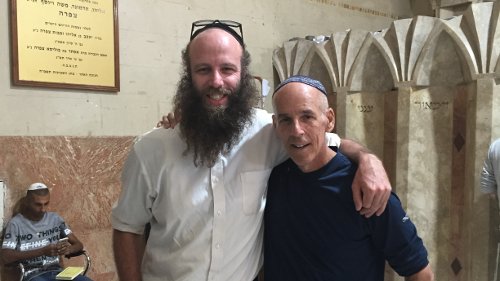 Raise a Glass to Freedom
Raise a Glass to Freedom


5 min read
Depression and burnout are common amongst doctors. Here’s why Maimonides and I buck the trend.
Physician burnout is a well-documented phenomenon. Many doctors feel over-worked, under-appreciated, and without the financial compensation they think that they deserve.
In general, the prevalence of mental illness is increased amongst physicians and both depressive and anxiety disorders are common due to the stress of work. Physicians are also at risk of turning to substance abuse as a maladaptive means of coping with burnout.
An old colleague, Duane, recently sent me the results of a survey that interviewed more than 15,000 American physicians in regards to burnout and depression.
"See how awful the field we picked is? We don't get paid enough, we work too hard, and no one even appreciates us! Terrible."
I decided I'd read the study before responding but the facts on his side were clear. Of these 15,543 physicians who were interviewed for the study, 42% reported feeling burned out and 15% noted depression. At the top of the list for causes of burnout were the long work days, excessive paperwork, and the perceived lack of respect from colleagues and patients alike. Other things like lack of financial compensation, government regulations, and "feeling like just a cog in the wheel" were noted as well.
But the more I read the study, the more I realized that my colleagues from the survey were missing the point. Sure I am a psychiatrist and therefore less likely to experience burnout as opposed to – according to the study – a cardiologist, but this really wasn't the main reason that I feel different about my work.
What other profession is there where you can be God's direct messenger for bringing healing to the world? Every single day I am inspired by my role to help my patients stay healthy in order to spend more time with their loved ones. Sure, I don't get paid as much as my friends in the medical laser business, but thank God I'm not starving and I can afford to put gas in the car.
Yes, the paperwork is pretty gruesome sometimes, but that's the same in every profession.
And what's this narishkeit (Yiddish for ridiculousness) about being under appreciated? As one of a handful of Torah-observant and English-speaking psychiatrists in Israel, I get phone calls from rabbis, celebrities, and downright good people every day thanking me for my help. Even before I came to Israel and was just another humble psychiatrist in Boston, I used to get dozens of home-baked goods from my grateful patients that I'd share with the nursing staff who were equally thankful.
So here’s what I emailed Duane in response:
"Duane, it's great to hear from you. I'm sorry that you are feeling burnt out with your work. But remember that we are perhaps in the only field that allows us to have the trifecta of intellectually-stimulating work, the ability to improve the lives of others, and – in spite of your complaining – a more-than-sufficient salary. Don't tell me that you'd be happier as a business guy because they are also under-appreciated and a dime-a-dozen. You need to remember how lucky we are to have been tasked with the Holy responsibility of healing our patients. If you can keep that in mind then you'll be able to return to being part of the 58% of us who aren't burned out and the 85% of us who aren't depressed."
After I sent the email, I thought for a moment about Duane and whether he might have an additional point. Hadn't I also experience moments of feeling over-worked and under-appreciated? Perhaps the difference was that I had surrounded myself by amazing people to keep me motivated and to remind me what I'm out there doing every day: a loving wife, great kids, exceptional rabbis, and fantastic parents.
 Me and my dad
Me and my dad
The best doctor I know also happens to be my dad. While he never pushed me towards medicine, I was constantly impressed by the tremendous responsibility he took to know and care for each and every one of his patients. Beyond his family, my father's most treasured possessions are certainly the hand-carved wooden sculptures he received as a token of appreciation from his favorite patient. There is no more powerful gift than honest gratitude. My father still appreciates this as the true blessing of being a physician.
Maimonides – the famous Jewish physician and Torah scholar who lived close to 1000 years ago – also embodied this practice. At my medical school graduation, all 108 of us stood for the reading of his oath which describes the holy responsibility of physicians to care for their patients.
But what most of my fellow students didn't know is that there is also a prayer that Maimonides wrote before he would diagnose and treat his patients. While every word is a beautiful and soulful expression of admiration for our Creator, I sometimes skip to the end where I find tremendous strength in these words:
"Almighty God! You have chosen me in your mercy to watch over the life and death of your creatures. I now apply myself to my profession. Support me in this great task that it may benefit mankind, for without your help not even the least thing will succeed."
This piece is dedicated in honor of my dad
